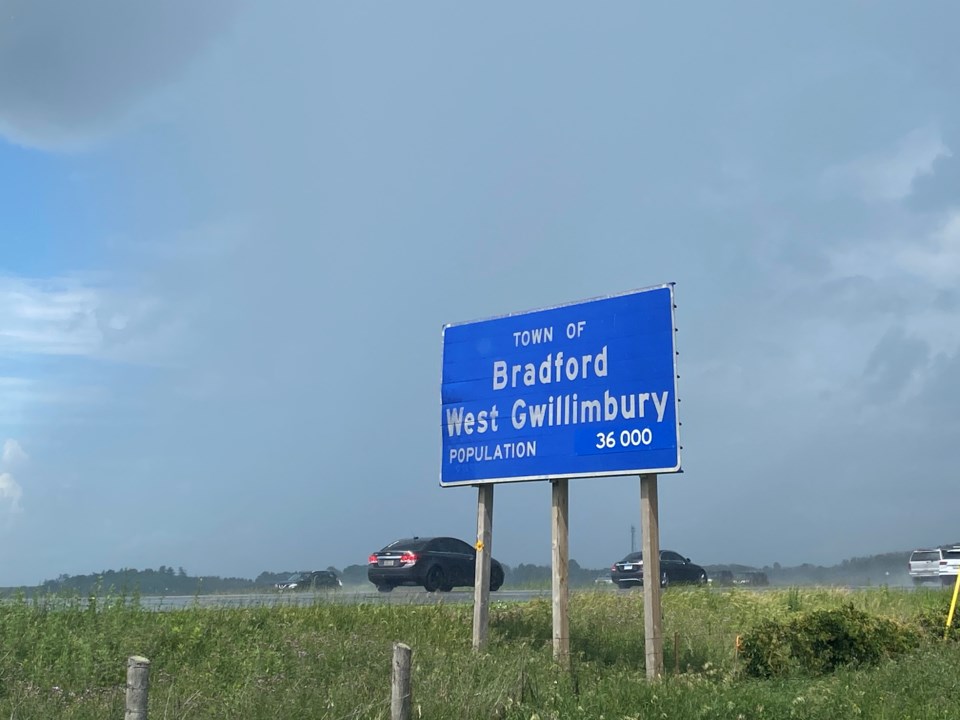NEWS RELEASE
ECOJUSTICE
RESCUE LAKE SIMCOE COALITION
*************************
Seven environmental and community groups are before the Federal Court today, seeking judicial review of federal Minister of Environment and Climate Change, Steven Guilbeault’s failure to consider designating the Bradford Bypass highway project for a federal impact assessment.
In addition to increasing carbon and air pollution, the proposed highway will have significant impacts on important habitats, wildlife, and watersheds. The groups say Minister Guilbeault’s choice not to designate the Bradford Bypass for assessment under the Impact Assessment Act (IAA) flies in the face of the federal government’s stated commitments to scientific integrity and meaningful public participation in impact assessments.
The Minister’s decision sets a dangerous precedent that weakens the designation request tool under the IAA. This tool gives the Minister discretion to trigger an assessment for a proposed project that is not automatically included as a ‘designated project’ under the Act.
Ecojustice is representing Rescue Lake Simcoe Coalition, Ontario Nature, Forbid Roads Over Green Spaces, Environmental Defence, Wilderness Committee, Wildlands League, and Earthroots in the lawsuit. The groups released the following statements regarding today’s hearing:
Ian Miron, lawyer, Ecojustice said:
“The IAA’s designation request tool is an important safety valve that gives local communities a say in making sure that potentially harmful projects do not slip through the cracks. Rather than considering public concerns and the project's potential environmental effects, the Minister took a very narrow view of his power to trigger a federal impact assessment for the Bradford Bypass.
“We are going to court to ensure that local communities across Canada can count on the federal government to step in to adequately scrutinize the potential long term environmental, community and health consequences of large development projects when provincial governments fail to do so.”
Tim Gray, executive director, Environmental Defence said:
“The Holland Marsh, Lake Simcoe, endangered species and our climate are all threatened by the Bradford Bypass. Our federal government has a responsibility to ensure proper environmental reviews are undertaken, especially when the provincial government aggressively abdicates its responsibility to do so.”
Claire Malcolmson, Executive Director of the Rescue Lake Simcoe Coalition appreciates the support of smaller local groups challenging the Bypass, and the larger ENGOs supporting this legal case:
“It is extremely challenging for small groups like ours to be heard at the volume needed. Little Lake Simcoe’s health can improve if its harmful projects like the Bypass never get off the ground. That’s why we are still here asking the Minister of the Environment to do what his Ministry claims to do.”
Bill Foster, Chair of Forbid Roads Over Green Spaces said:
“Given Canada’s focus on climate change and its consequential impacts on our fragile environment, we are astonished that the Federal Minister of Environment and Climate Change is content to allow Ontario to build such an environmentally intrusive highway based on 25-year-old information.
“A great deal has happened over the past quarter century since this highway was approved. Seven Lake Simcoe watershed municipal governments have requested studies concerning the impact this highway will have on Lake Simcoe, such as road salt. Surely, these requests and Ontario’s strident refusal to consider alternative, less environmentally invasive route locations, should warrant Federal Government oversight.”
Dr. Anne Bell, director of conservation and education, Ontario Nature said:
“The proposed Bradford Bypass would slice through the Holland Marsh, a provincially significant wetland. Ontarians are already paying the tab on short-sighted projects that have paved over wetlands, exacerbating flooding and degrading water quality. Not only do Ontario’s wetlands provide habitat for 20 percent of the province’s species at risk, but they also deliver more than $50 billion in economic benefits each year.”
Katie Krelove, Ontario Campaigner, Wilderness Committee said:
“The federal Minister of Environment and Climate Change is doing an environmental assessment on another Ontario government proposed highway, the 413. The Bradford Bypass will have similar impacts and deserves the same consideration. These decisions must be based on science and the public good, not on politics.”
Gord Miller, Chair of the Board, Earthroots said:
“The impacts on our natural landscape are real, substantial and increasing in magnitude with our growing population and economy. There has to be a public mechanism where these impacts are critically assessed and evaluated against the benefits proposed. The provincial government is increasingly abdicating this responsibility. We need the federal government to step up to its statutory obligations as the final arbiter.”
Background
The Bradford Bypass is a proposed sixteen-kilometre freeway located in Simcoe County and York Region in the northern Greater Toronto Area. Environmental groups have raised concerns that the provincial government is pushing this project forward without adequately considering its adverse environmental, climate, community, and health impacts.
Ecojustice, on behalf of Rescue Lake Simcoe Coalition and Simcoe County Greenbelt Coalition, first made a request to the federal Minister that the highway project be designated for a federal assessment in February 2021. That letter was supported by 20 local residents and environmental organizations. Petitions opposing the controversial project received 18,000 signatures. The request was denied.
Three community groups made a second request for a federal impact assessment in November 2021, which highlighted changes to the provincial regulatory regime, growing public concerns, and mistakes in the Minister’s first assessment of environmental effects the project could cause to areas of federal jurisdiction (like climate change and fish habitat). This request was also denied. It is this decision that is now being challenged in court.
*************************
